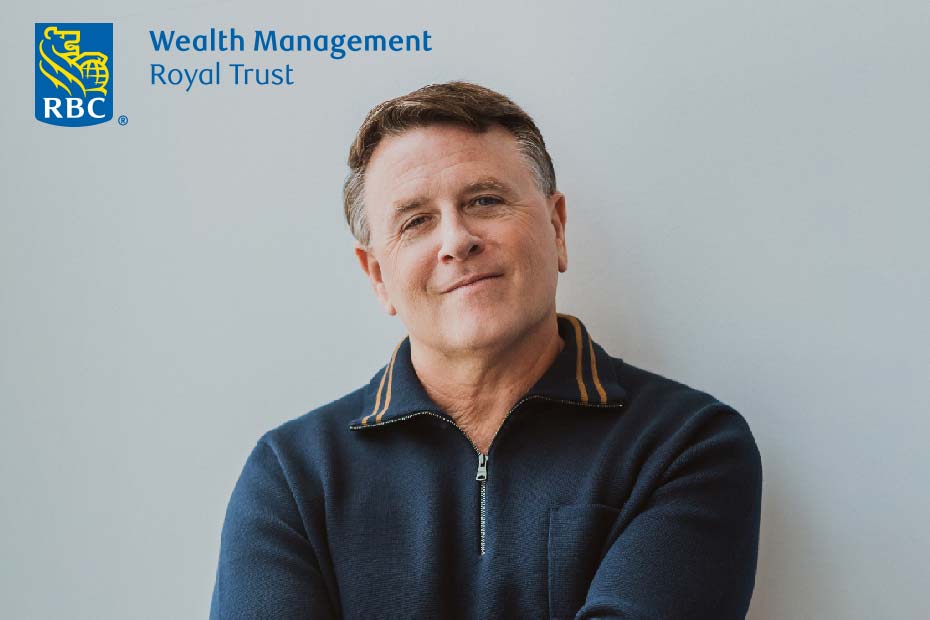TLDR
-
It’s never too late to pursue lifelong learning. And with workshops, seminars and courses available online and in person in every topic imaginable, it’s never been easier!
-
Going back to school offers older adults benefits beyond learning something new. It boosts brain power, and can reveal new retirement hobbies, provide a sense of purpose, and even spark a second career.
-
By learning with classmates who share your curiosity, you can widen your social network.
-
Taking a course to brush up on technology skills can boost your confidence and help you connect with young family members and friends.
Retirement can be an ideal time to go back to school. Whether you want to pursue a new hobby, meet people who share your interests, or pivot to a new career, it’s never been easier to find lifelong learning opportunities and really enjoy your retirement.
Why go back to school in retirement?
If you’re curious about going back to school in retirement, there are plenty of reasons to sign up for a class, from boosting your brain health and finding a new passion project to expanding your social circle. It’s never been easier to find lifelong learning opportunities, whether in a continuing education classroom in your community or in an online course with classmates from around the world.
The popularity of lifelong learning programs for Seniors in Canada
Baby boomers — people born between 1946 and 1964 — are the most highly education generation of seniors in Canadian history. The percentage of older adults with a university certificate, diploma or degree continues to rise. The more education an individual has received, the more likely they are to continue learning throughout life.
But it’s not just seniors with college degrees who pursue lifelong learning. With so many workshops, seminars and courses available online and in person, not to mention how-to videos, podcasts and books, it’s easier than ever for seniors to learn something new.
Is it too late to go back to school in retirement?
Perhaps you brush off the idea of going back to school as an impractical pipe dream. Your brain may find plenty of ways to tell you it’s too late: “I’m too old to go back to school. I’m not up on the technology, and I’m not as sharp as I used to be.”
But plenty of your peers are having fun discovering new passions and dusting off old hobbies and skills they left on the shelf long ago. You may have more time now than at any other time in your life to try something new!
Top 5 benefits of lifelong learning in retirement
Research has shown that pursuing education later in life produces a host of health and social benefits — and it’s not nearly the leap you might expect. Here are five solid ways that lifelong learning pays off.
1. Boost your brain health and stay sharp
Scientists and researchers have known for years that learning new things helps keep your brain young. In everything from board games to university classes, studies provide strong evidence that lifelong learning and active cognitive engagement may help slow the development of age-related cognitive diseases.
Ongoing neuroscience research confirms that regular educational activities build cognitive reserves. Continued learning boosts the brain’s ability to form new neural connections — guarding against damage and age-related decline. This brain growth continues to happen into older age. It has also been shown to prevent or delay Alzheimer’s and other age-related dementias.
For example, researchers are finding significant links between learning a second language and delaying the onset of Alzheimer’s and other forms of dementia. So take that Italian language class you’ve had your eye on and help slow aging in your brain.
2. Discover new passions and purpose
If your identity for many years was tied closely to your job, retirement can be a jolt. Perhaps you feel society no longer needs your unique contributions. But nothing could be further from the truth. Learning something new can open doors to unexpected opportunities you might not have imagined while you were busy with your career. As you embrace learning, your sense of identify shifts from what you used to do to emerging talents and expertise — bringing a renewed sense of purpose into your own life.
The key is to follow your interests. What piques your curiosity? Make a list and think about how you could learn more about one or two of the items. If you’re curious about learning Spanish or American Sign Language, sign up for a class. It won’t be long before you have the basic skills to communicate in an inclusive way with members of your community. Join a citizens action group and learn skills on the ground in community building, volunteer organizing or public speaking. Or renew your passion for modern art with an art appreciation class, then volunteer as a museum docent.
3. Explore second career or volunteer opportunities
Older adults are increasingly choosing to continue to work for a variety of reasons. For some, retirement is the perfect time to press the reset button for career reinvention. Going back to school enables you to put your life experience to work in a new career or volunteer role. Nonprofit organizations and community initiatives need experienced volunteers and advisors who have the wisdom and perspective gained over years in the workforce.
Taking a class can boost your confidence in staying current and adaptable and able to contribute at work. You can extend the warranty on skills you already have with short courses, workshops, or classes leading to a certificate in a related area. For example, taking a class might help you apply what you learned during a career in management to an advisory role with a startup or a nonprofit consulting gig. Or you could take a class to learn an entirely new role or industry, then pivot into a role that blends your career experience with fresh, current skills in an entirely new area, like coaching, entrepreneurship, teaching, or the arts.
If aligning your work with personal values is high on your list, look for certificate programs, workshops and classes in areas that let you dig deeper. Gaining knowledge builds confidence to contribute in areas you’ve always cared about but never had time to pursue.
Taking a class also connects you to peers and instructors who share your interests. The classroom, whether in person or online, is a great place to create valuable networks that can lead to consulting or advisory roles.
4. Expand your social circle
Lifelong learning for retirees is about more than improving your knowledge: It is a natural social environment that centres around a shared curiosity or sense of purpose. As you pursue learning, your social group might expand as a result: You might join a community orchestra after taking flute lessons, volunteer at a repair clinic after classes in small-engine repair, or tutor English-language learners after training workshops.
5. Upgrade tech skills for today’s world
When it comes to using technology, going back to school in retirement can make a huge difference in personal and practical ways. From spreadsheets for home finances to research on genealogy websites to all the ways you can access and share information on your smartphone — learning how to use technology makes you an active participant in a digital society.
Understanding technology builds enthusiasm and confidence. But it does more than that; it helps you connect more effectively with virtually everyone, from companies you do business with to younger relatives or community members. If your goal is to be more tech savvy so you can access information online and stay in touch with loved ones, there are free and low-cost ways to learn virtually everywhere, from workshops at your local library or community education provider to YouTube videos.
It’s also important to upgrade your tech skills with a class or certificate program if you are planning to take on new professional roles in retirement. Technology is evolving at a dizzying pace, and you will have to use it in some capacity. Find a niche that most interests you, or that you will need to understand for a new work or volunteer assignment. You might be surprised at what you can do with new skills making videos or scheduling online meetings, for example.
What are the best continuing education options for seniors?
Where you find learning opportunities depends on what kind of education you want to pursue. Here are some options to consider:
-
Continuing education: College continuing education programs let you upgrade skills or certifications — an ideal option if you’re exploring a second career or preparing for part-time, consulting, or leadership work. They also have classes for personal enrichment in a wide range of topics.
-
University lifelong learning: Learning in retirement programs in colleges and universities also offer classes for personal enrichment aimed at older adults. The LIFE Institute at Ryerson University in Toronto, for example, has a robust program of learning, recreation and volunteer opportunities for adults ages 50-plus. The Liberal Arts + 55-Plus Program at Simon Fraser University in Vancouver offers discounts on enrichment courses to mature students. And of course, you can enrol in a degree program at any age.
-
Online learning: The flexibility, convenience and sheer breadth of available education options for seniors online can’t be beat. Coursera and edX are popular providers, offering a huge range of courses, including certificate and degree programs, from leading universities and organizations.
-
Community-based workshops: Senior centres and libraries offer non-credit enrichment courses, lectures and workshops in a wide range of topics, from memoir writing to pickling to AI, and they’re usually inexpensive or free.
FAQs about adult education in retirement
Yes, though it varies widely among institutions. If you’re 65 or older and meet admission, residency and prerequisite requirements, you may get free tuition at Canadian post-secondary institutions such as McMaster University and University of Saskatchewan—subject to certain restrictions. Students ages 60 or older who are Canadian citizens or permanent residents, reside in Ontario and meet certain income requirements may qualify for a bursary to cover part of their tuition cost at universities like Western and Brock.
Adult students’ preferences depend on the topic they’ll study. Exercise and movement, along with music lessons, book clubs, and computer classes, often work best in person. But seniors online programs work well for many other enrichment courses.
Taking an online course can be a great way to keep your brain sharp. While using technology can be challenging, the mental stimulation it provides helps your brain make new neural connections. Regular use of the internet up to two hours a day may help protect against dementia. Online classes can also introduce you to people around the world who share your interests.
Canada’s Lifelong Learning Program offers one option. It allows you to withdraw up to $10,000 per calendar year from your registered retirement savings plan (RRSP) to pay for training or education up until the end of the year you turn 71. It is restricted to full-time enrolment in a qualified program.
The bottom line: Retirement is the perfect time to learn
Pursuing education in retirement has many mental and social benefits, from brain-sharpening powers to an expanded social network. You might surprise yourself by gaining unexpected expertise in an area you’ve always been curious about. You may even launch a new career. Make retirement a time of discovery. Rest assured, it’s never too late to go back to school!
To find out how going back to school fits into your retirement plan, explore articles in RBC’s Living in Retirement. Learn more about retirement planning with one of our advisors. Our experts are here to help you make the most of your next chapter.
This article is intended as general information only and is not to be relied upon as constituting legal, financial or other professional advice. A professional advisor should be consulted regarding your specific situation. Information presented is believed to be factual and up-to-date but we do not guarantee its accuracy and it should not be regarded as a complete analysis of the subjects discussed. All expressions of opinion reflect the judgment of the authors as of the date of publication and are subject to change. No endorsement of any third parties or their advice, opinions, information, products or services is expressly given or implied by Royal Bank of Canada or any of its affiliates.






